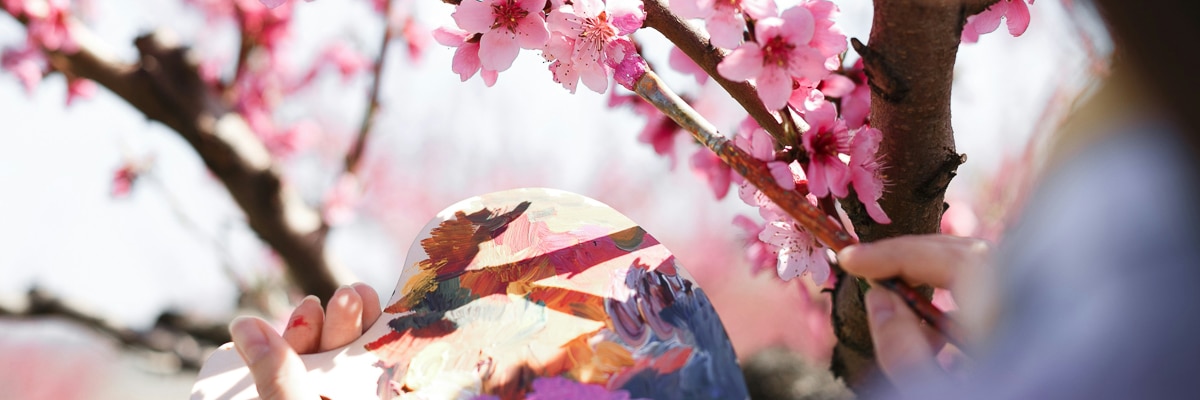
Endless Strength! / Your love authored life / when You spoke that one Word. / You’re the One who ordered / order, created / Creation, Your own / way.
—Hildegard of Bingen, trans. Carmen Acevedo Butcher
Father Richard understands the cosmos as the first Incarnation of God:
The first Incarnation of God did not happen in Bethlehem 2,000 years ago. That is just when it became human and personal for us, and many people started taking divine embodiment seriously. The initial Incarnation actually happened around 13.8 billion years ago with the “Big Bang.” That is what we call the moment when God decided to materialize and self-expose.
Two thousand years ago marks the human incarnation of God in Jesus, but before that there was the first and original incarnation through light, water, land, sun, moon, stars, plants, trees, fruit, birds, serpents, cattle, fish, and “every kind of wild beast” according to the creation story in Genesis 1:3–25. This was the “Cosmic Christ” through whom “God has let us know the mystery of his purpose, the hidden plan he so kindly made from the beginning in Christ” (see Ephesians 1:9–10). Christ is not Jesus’ last name; it’s the title for his life’s purpose.
Jesus is the very concrete truth revealing and standing in for the universal truth. As Colossians puts it, “he is the image of the invisible God, the first born of all creation” (1:15); he is the one glorious part that names and reveals the even more glorious whole. “The fullness is founded in him … everything in heaven and everything on earth” (Colossians 1:19–20). Christ, for Franciscan theologian John Duns Scotus, was the very first idea in the mind of God [1] and God has never stopped thinking, dreaming, and creating the Christ. “The immense diversity and pluriformity of this creation more perfectly represent God than any one creature alone or by itself,” adds Thomas Aquinas. [2]
For most of us, this is a significant shaking of our foundational image of the universe and of our religion. Yet if any group should have come to this quite simply and naturally, it should have been the three groups of believers that call themselves monotheists: Jews, Christians, and Muslims all believe that the world was created by one God. It would seem to follow therefore that everything, everything without exception, would bear the clear imprint and likeness of the one Creator.
Our very suffering now, our condensed presence on this common nest that we have fouled, will soon be the ONE thing that we finally share in common. It might well be the one thing that will bring us together. The earth and its life systems on which we all entirely depend (just as we depend on God!) might soon become the very thing that will convert us to a simple gospel lifestyle, to necessary community, and to an inherent and universal sense of the holy.
References:
[1] This idea is often called the thesis on the absolute primacy of Jesus Christ. Duns Scotus used Romans 8:29, Colossians 1:15–20, and Ephesians 1:3–10 and 2:20 as the basis for his theology.
[2] See Aquinas, Summa Theologica 1.47.1.
Adapted from Richard Rohr, “Creation as the Body of God,” Radical Grace 23, no. 2 (April–June 2010): 3.
Image credit and inspiration: Jennie Razumnaya, Blooming Peach Garden (detail), 2022, photo, Los Angeles, Unsplash. Click here to enlarge image. We’re invited into the beauty of creation, receiving and offering, just like this artist painting the petals of a cherry blossom.
Story from Our Community:
Recently, I sat in my Sunday morning quiet space—a bench in the garage of our home. Looking over at the car parked next to me, I thanked it for being faithful to us in escorting us from place to place. I thought of the complicated process of building the car—a product of metal, glass, plastic, lubricants—all fashioned by the hands of its creators, both human and divine. In the past, the thought of literally “thanking a car” would have been crazy to me. But through that experience of offering gratitude to something I see every day, I felt deeply connected to God.
—Greg M.




